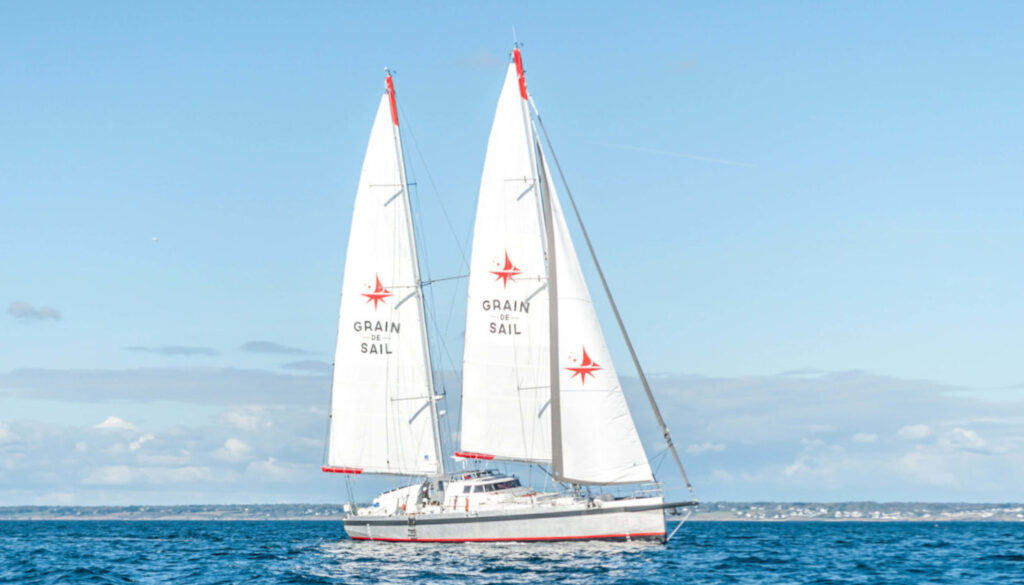No ballast water pollution on Grain de Sail II
The innovative cargo sailing ship Grain de Sail II has crossed the Atlantic with an advanced ballast water treatment system supplied by BIO-UV Group.
The ship, based in St Malo, France, transports French produce by sail to New York before sailing south to the Caribbean, loading locally grown organic produce such as cocoa and coffee beans.
Respecting the ecosystem
The 52-metre wind-powered Grain de Sail II was christened in January this year and built by French shipbuilder Piriou Group – a long-time partner of the ballast water treatment system manufacturer – is equipped with a UV platform-mounted BIO-SEA L unit installed with a Filtrex filtration system. The system is designed to treat ballast water flows of 30 m3/h. “The successful delivery of Grain De Sail II, a schooner with an aluminium hull, marks a decisive step in the development of sustainable shipping. BIO-UV Group is committed to working with shipowners and shipyards that push the boundaries of innovation and design to build a new generation of vessels that respect the marine ecosystem,” said Laurent-Emmanuel Migeon, CEO of BIO-UV Group.
Preventing invasive exotic species
Wind-driven cargo vessels are particularly suited to the ultra-compact, easy-to-use BIO-SEA L series because of their requirements for low ballast flow rates, ranging from 13 to 120m3/h. The system components are delivered all-inclusive and can be supplied in different configurations, such as modular, split or full skid versions, allowing maximum adaptability for onboard system integration. Loïc Briand, Managing Director of Morlaix-based Grain de Sail Shipping, owner of the eponymous vessel, said, “The successful construction and delivery of this hugely innovative sustainable vessel demonstrates that we are at the forefront of innovation in the emergence of sustainable shipping across the maritime industry. By transporting goods by sailing ship across the Atlantic, we have one of the lowest possible ecological footprints.” Maxime Dedeurwaerder, BIO-SEA Maritime Business Unit Director, added: “New construction projects like this one are a great opportunity for the BIO-UV Group to help reduce environmental impact even further by preventing the migration of invasive species in the most effective way.”


